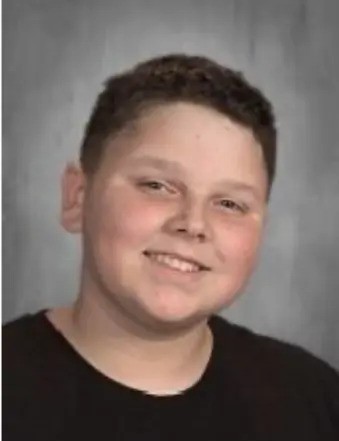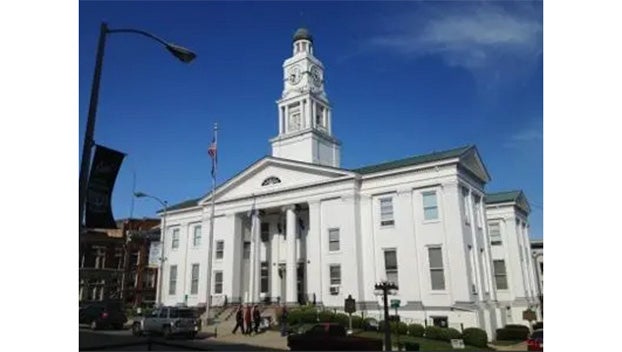National Treatment Court Month recognizes all in recovery
Published 10:30 am Friday, June 7, 2024
|
Getting your Trinity Audio player ready...
|
With the community of Winchester fighting hard to combat Substance Use Disorder, support those amidst mental health battles, and more, it seemed the time was right to provide recognition.
Recently, such an opportunity came to fruition.
On Friday, May 31, the city of Winchester declared May 2024 All Rise National Treatment Court Month.
Trending
“I really can not tell you how [inspiring] you are to me,” said Mayor JoEllen Reed, speaking to a group of survivors. “[After] the fight you’ve had and your struggles, you’re still standing tall. That’s what’s so important.”
All Rise, formerly known as the National Association of Drug Court Professionals, rebranded after nearly 30 years to better reflect its impact across the justice system.
According to its website, “treatment courts are considered the most successful justice intervention for people with substance use and mental health disorders.”
The day’s recognition began at 11:00 a.m. on Friday with a picnic beside the Clark County Courthouse.
While there, attendees could talk to and learn more from organizations dedicated to providing mental health and additional support, including Mountain Comprehensive Care Center, Celebrate Recovery, Clark County Community Services, and more.
Later, a Recovery Walk took place at noon.
Trending
Shortly after, Mayor Reed proclaimed May as Treatment Court Month just outside the front steps of the Clark County Courthouse.
On the steps, many who gathered to hear the proclamation held signs with statements such as “You can do it!” “Trust the Process,” and “Rock bottom became the solid foundation on which I rebuilt my life!”
According to the proclamation, there are now more than 4,000 treatment courts nationwide, which are transforming the way the justice system responds to people with substance use and mental health disorders by combining accountability with evidence-based treatment.
While annually referring more than 150,000 people to lifesaving treatment and recovery support services, treatment courts save an average of $6,000 for each individual they serve.
Treatment courts significantly improve substance use disorder outcomes, reduce addiction and related crime, and do so at a lesser expense than other justice strategies.
They also improve education, employment, housing, and financial stability, promote family reunification, reduce foster care placements, facilitate community-wide partnerships, and bring together public safety and public health.
Perhaps most notably, they demonstrate that when one person rises, all Rise.
Afterward, following a Chalk It Up to Recovery Event at Clark County Circuit Court, the graduation of those who have completed Treatment Court – also called Drug Court – took place inside the Circuit Courtroom of the Clark County Courthouse.
Judge Cole Adams Meier of the 25th Judicial District Division 2 oversaw the ceremony, which was attended by many, including fellow Circuit Court Judge David M. Ward of the 25th Judicial Circuit Division 1.
Circuit Court Clerk Martha Miller, who has also been actively supporting the program, was also in attendance.
“One of the things I admire so much about people in recovery is a remarkable resilience and ability to meet adversity,” said Judge Adams Meier. “You don’t know anyone else’s struggle.”
Interestingly enough, Judge Adams Meier’s mother, former District and Circuit Court Judge Julia Adams, played a significant role in beginning the program in Clark County.
“My colleague and I…decided there was a better way to go about dealing with people with substance abuse issues,” she said. “It was all trial and error. What I look for in a drug court participant is just that: trial and error. I don’t expect everyone to be perfect.”
Also speaking at the event were previous drug court participants and graduates, reinforcing the fact that recovery – though challenging at times – is indeed possible.
Last but certainly not least, two of the drug court graduates present—Michael Johnson and Jonathan Coleman—were recognized.
Officially, the Administrative Office of the Courts celebrated them with a Certificate of Completion.
“Do what you’re supposed to… they’ll help you if you let them,” said a sometimes-emotional Johnson. “I’m repairing…relationships with my kids.”
“It’s taken a long time to get me here,” Coleman said. “It’s still working…keep it up, show up, [and] think positive.”
Those in attendance celebrated Johnson and Coleman, some standing to applaud.
Concluding the event, Judge Adams Meier shared some additional words with the audience, whether it be individuals in recovery or otherwise.
“I’m grateful to all of you for your insight, attention, [and] your attendance today,” she said. “I believe there’s a lot of potential in this room.”






